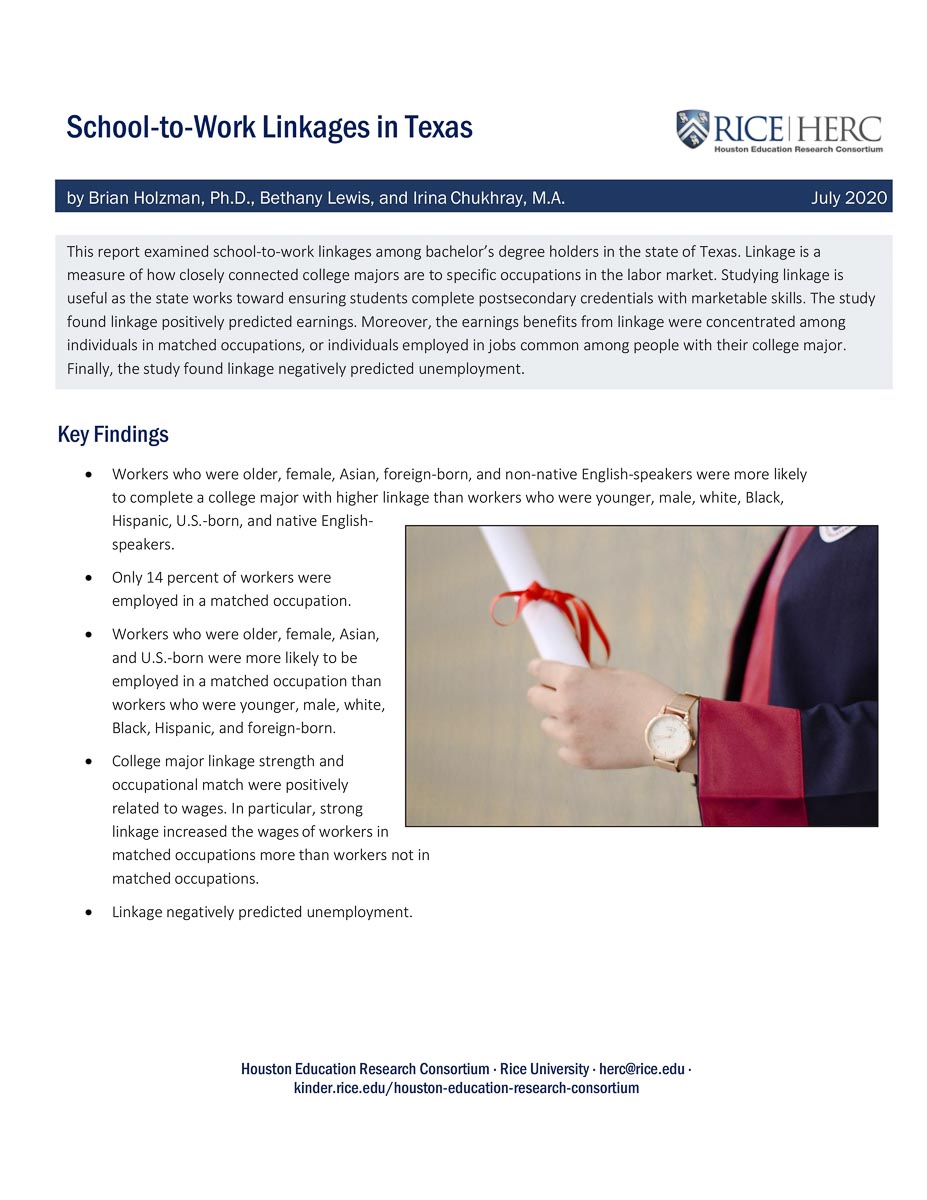This report examined school-to-work linkages among bachelor’s degree holders in the state of Texas. Linkage is a measure of how closely connected college majors are to specific occupations in the labor market. Studying linkage is useful as the state works toward ensuring students complete postsecondary credentials with marketable skills.
Key findings include:
- Workers who were older, female, Asian, foreign-born, and non-native English-speakers were more likely to complete a college major with higher linkage than workers who were younger, male, white, Black, Hispanic, U.S.-born, and native English- speakers.
- Only 14 percent of workers were employed in a matched occupation.
- Workers who were older, female, Asian, and U.S.-born were more likely to be employed in a matched occupation than workers who were younger, male, white, Black, Hispanic, and foreign-born.
- College major linkage strength and occupational match were positively related to wages. In particular, strong linkage increased the wages of workers in matched occupations more than workers not in matched occupations.
- Linkage negatively predicted unemployment.



